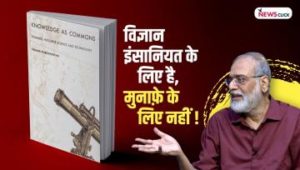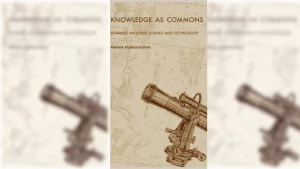Data services and telephone services use different technologies. Charging a service on the basis of function and not technology creates major licensing anomalies.
The Department of Telecom (DoT) Report on Net Neutrality is better written than the shoddy consultation paper that the Telecom Regulatory Authority of India (TRAI) produced last March. But while the DoT report pays the usual lip-service to net neutrality, it refers the most contentious section — on the Zero Rating services such as Airtel Zero and Facebook-Reliance Internet.org — back to TRAI. The report concedes that the domestic voice revenues of telecom companies are increasing but accepts their claims that if Voice over Internet Protocol (VoIP) services are allowed to compete, there might be significant revenue loss in future. DoT’s treatment of VoIP is also inconsistent: it proposes that domestic VoIP calls be licensed, but not international calls.
The report does accept that net neutrality principles are basic to the Internet, and need to be incorporated in the licences of Internet and telecom service providers. This is a step forward. It does shift the debate from whether India needs net neutrality to what constitute violations of net neutrality. The report also states that only those OTT services that compete directly with existing communication services such as voice may need to be brought under some form of regulation. TRAI’s absurd claim that all websites and Internet services are communication services and therefore potentially subject to licensing will, mercifully, receive the quiet burial that it richly deserves.
When the debate erupted, Airtel and Facebook suddenly fell in love with net neutrality. They gushed about how they would never violate it. Since both companies offer variants of Zero Rating Services, their definition of net neutrality is obviously different from that of others who regard such services as a violation of net neutrality. The DoT report lists all the reasons why net neutrality should be a core principle, but it virtually negates it by suggesting that various Zero Rating plans should be submitted to TRAI for evaluation. Worse, the report talks about “guidelines” and “criteria” to evaluate net neutrality. Why did the committee not evaluate the Zero Rating plans against such guidelines and criteria instead of passing the buck to TRAI?
Simply put, net neutrality believes that those who control or own the physical network — either the wired or the wireless network — over which the Internet runs shall not discriminate between different kinds of services or websites. By controlling access, telcos cannot extract a monopoly rent or termination fee from websites or web service providers.
Net neutrality ensures that the wealthiest website or one with virtually no resources has equal access to the users. Today, there are about 1 billion websites, of which about 175 million are active. The bulk are small organisations, movements, non-commercial news organisations, or new service providers. These websites and innovative services springing up on the Internet every day would be badly hurt without net neutrality. The Internet would, then, be very much like cable TV, where select TV channels are carried by networks to viewers.
The DoT report underlines non-discriminatory access and states that traffic speeds cannot be controlled; and Internet monopolies, ISPs or TSPs, should not act as gatekeepers. But it fails to take the next step of calling out Zero Rating services, which bundle a few websites to be provided free to subscribers, or avoid the data caps imposed on others once the download limit is exceeded. Offering a few sites as a free bundle means blocking all others, either from the beginning or after the data cap is exceeded. If slowing down traffic from a particular source is a violation of net neutrality, why is blocking some sources not a violation?
The report’s second problem is the argument that VoIP services are essentially voice services even if offered over the Internet, and should thus have the same licensing terms as those for telecom services.
Historically, data services and telephone services use different technologies and have completely different principles built into them. Traditional voice services create a physical circuit through telephone switches that connect two sides. In data services including VoIP, all voice communication is converted into small data packets that are sent over the Internet and re-assembled at the other end. This is identical to all other communication online — whether voice, text or image. Treating a service on the basis of function and not technology creates major licensing anomalies. It also creates a long-term problem as any web-conferencing software today has very similar capabilities. It is also not clear why domestic and international Skype calls need to be treated differently.
Strangely, DoT does not ask why Indian telcos have not offered VoIP services in India, when from 2006 their Unified Access Service Licences includes internet telephony? Should we consider regulatory arbitrage as between VoIP services of OTT players and existing voice services? Or should it be between the VoIP services of the OTT players and the Internet Telephony services that the telecom companies have chosen not to offer? Instead of offering the telecom licensees protection in the guise of regulatory arbitrage, should not TRAI and DoT have pulled up the telcos for not offering a service that has been in their licence for the last nine years?



